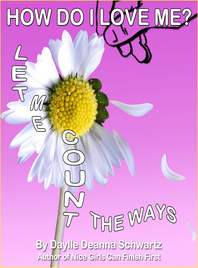 I’m delighted to have Dr. Eva Selhub, a Clinical Associate of the Benson Henry Institute for Mind/Body Medicine at the Massachusetts General Hospital, as my guest today. An integrative health specialist, she has a private practice in Newton Massachusetts, and is also a clinical instructor of medicine at Harvard Medical School. Dr. Selhub is the author of The Love Response: Your Prescription to Turn Off Fear, Anger, and Anxiety to Achieve Vibrant Health and Transform Your Life (Ballantine 2009). Here’s what she has to say:
I’m delighted to have Dr. Eva Selhub, a Clinical Associate of the Benson Henry Institute for Mind/Body Medicine at the Massachusetts General Hospital, as my guest today. An integrative health specialist, she has a private practice in Newton Massachusetts, and is also a clinical instructor of medicine at Harvard Medical School. Dr. Selhub is the author of The Love Response: Your Prescription to Turn Off Fear, Anger, and Anxiety to Achieve Vibrant Health and Transform Your Life (Ballantine 2009). Here’s what she has to say:
By now, with all the self help books, classes you have taken, TV shows you have watched, specialists you have seen, information you have gathered, and diets that you have been on, you know what constitutes “self care”: a balanced diet, healthy lifestyle, exercise, adequate sleep, meditating, maintaining a positive attitude and positive emotions, as well as good social networks, etc.
In fact, when you are on vacation, self-care seems easy–the sun is shining, you have fewer responsibilities, you are breathing fresh air and a smile is likely on your face. You want to feel good and continue feeling good. You sleep more, eat healthier, exercise, spend time with friends, perhaps gaze at a sunset or two, maybe meditate or go on retreat. You might feel more positively about your world and are generally happy.
But then life happens–stress builds up. The demands at work increase. You have to juggle these demands with the kid’s needs, the payment of the bills, your husband’s loss of employment, your ailing parents, your car which keeps breaking down, and your constant guilt that you are not giving more to the needy children you keep seeing on the commercials on TV.
You start losing sleep, cut out your daily exercise routine, grab food on the run, and when you see that box of donuts in the office kitchen, you think, “I deserve something sweet!” and eat two. Now of course, you feel guilty. Before you know it, to add to your stress, you start developing your own health problems–you name it.
How did that happen? How did you go from self-care to self-destruction? Why haven’t you reached out for help?
When stress takes over your life, your stress response will be set off more often than not. When this happens, the body can break down, the mind can lose its ability to be rational and clear, and negative emotions take over, leading to the outpouring of negative attitudes and beliefs. The more stress accumulates and the more these negative beliefs, thoughts and emotions come through, the more your body, mind and life can break down and now you are in the Fear Response.
 If at your core, you do not truly love yourself, self-destructive behaviors will take over at this stage. So even if you pride yourself on self care behaviors normally–you have read all the books, taken all the classes, and followed all the diets–you will fall off the wagon. You can’t stop it from happening because it would be like trying to stop a shiver when it is cold outside.
If at your core, you do not truly love yourself, self-destructive behaviors will take over at this stage. So even if you pride yourself on self care behaviors normally–you have read all the books, taken all the classes, and followed all the diets–you will fall off the wagon. You can’t stop it from happening because it would be like trying to stop a shiver when it is cold outside.
The key is therefore to fix the belief you have of yourself and attitude you have toward yourself. You have to choose to reprogram your unconscious mind to believe that you are lovable and loved. You choose to love yourself. Here are some tips for making that important choice:
1. When you find yourself reaching for that “comfort food,” calling that ex-romantic partner, pushing yourself to stay up late when your body is exhausted, take a second to ask yourself a question that begins with: “If I loved myself would I…”
“If I loved myself, would I choose to bathe my internal organs with diet soda instead of water?”
Also a “no duh” but most people do not consider that they are washing their internal organs with diet soda when they drink it. So ask yourself, “If I really loved myself, would I put this unhealthy substance in my body?” This question can be used is so many difference scenarios. For example, if I loved myself:
• Would I date this person?
• Would I not give my body the rest it needs?
• Would I push my mind and body so hard that I start getting sick?
• Would I sit for hours in front of a computer or television without giving my body and mind the exercise it needs and craves?
• Would I not surround myself with people that adore me and support me?
• Would I get mad at myself anytime I do something wrong (i.e. “I am so stupid! I can’t believe I did that.”)
If I loved myself, would I not speak and treat myself the way I would my best friend?
2. Honor your feelings. Pay attention to how situations, people, foods, actions, or behaviors make YOU feel. You are the star of the show. YOU matter. How is something or someone making you feel? Good or bad? This is a VERY important step, because you are acknowledging and honoring you! Then you can choose what you can do for you.
3. Appreciate. If you notice that something feels good, appreciate it, burn it in your memory and make a note or a plan to do it again! Breathe it in because you deserve it! Take time to appreciate yourself and what you do have–say to yourself “I am so lucky that….” And add something in. Just by saying those words you will notice that you are feeling better.
4. Be your best friend. If it is bad that you feel, ask yourself, if I loved myself, what would I do for myself? If I were my best friend, what would I do?
Sometimes a hug will do that trick–give it to yourself or find a friend and tell them, “I don’t need advice, I just need a hug.” Once again, you are acknowledging and honoring your needs and allowing yourself to be taken care of. The physical touch will help distress your body and mind. Or simply perform a random act of kindness for you–compliment yourself, thank yourself for nurturing you or opening the door for yourself.
5. Give yourself a “love me gift” -big or small–flowers, a little piece of jewelry, or my book! Ha ha!
6. Reach out. Reach out for love and support from your friends, counselor or community, especially a spiritual community. Knowing when to ask for help and that you are deserving of help, is a testament to fully loving yourself. There is no shame in this!
7. Perform a random act of kindness for someone else–you will acknowledge how dear you are and someone else will too. Of course, as you make their day brighter, they might do the same for someone else.
Before you know it, you will create a foundation of self-love that sustains you during times of stress. And if you do fall off the wagon, it wont be for long, because you will not admonish yourself, you will not feel shame, and you
will simply recognize that you are in need of more support and help, so you reach out.
———————
Dr. Eva Selhub also works as an executive coach, helping professionals from all over the globe to optimize leadership skills and achieve even greater success. She is the author of The Love Response (Ballantine 2009) and she has been published in medical journals and featured in national publications including The New York Times, USA Today, Self, Shape, Fitness, and Journal of Woman’s Health, and has appeared on radio and television in connection with her work. She also has four audio CD’s, Relax in to Love, Finding Stillness, Living in the Love Response and Experience the Love Response.
Please leave comments under my posts so we can stay connected.

